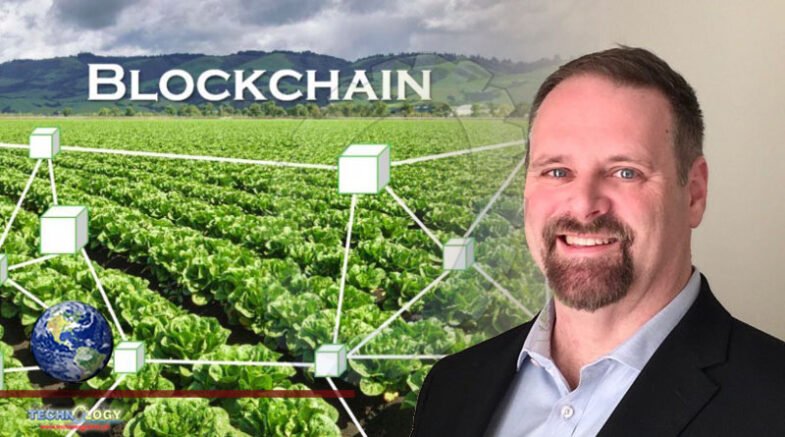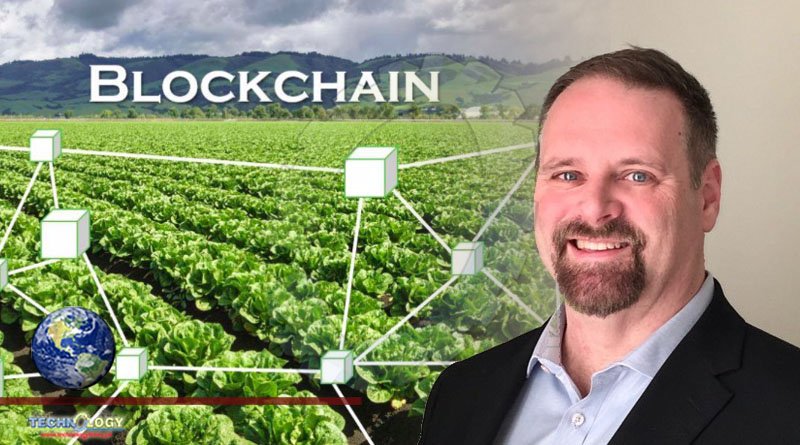AgTech company Dimitra is introducing new ways in which farmers and investors can use blockchain technology in agricultural industry.

The agricultural industry went through a major metamorphosis during the industrial revolution, and it might be set for another groundbreaking evolutionary stage now. With the use of blockchain technology in agriculture, the farming and agricultural sectors will witness a lot of innovation and improvements.
According to Jon Trask, CEO & Founder, Dimitra Ag Tech, the opportunities for the agricultural sector to benefit from blockchain-based tech are endless.
Agriculture and technology merge
Q: Is the adoption of blockchain technology becoming more widespread across the agricultural industry? What are the main challenges for small farmers and agricultural companies to incorporate this technology?
The adoption of blockchain technology in agriculture is growing within the sector; the spread of mobile devices has made farming applications accessible to farmers globally. Earlier in developing nations, few farmers had laptops or computers. Mobile device penetration in rural areas lagged in developing countries.
Early applications were basic and didn’t work well offline, which is a necessity in agriculture. They also only offered a few features, requiring farmers to buy several applications, which was a significant deterrent.
Initially, mobile-based systems were distributed in North America and Europe. Farmers in developing nations have struggled with expensive Agtech applications and their licensing costs.
Q: What is AgFi? What are the key aspects of this nascent space, and how can AgFi help farmers?
AgFi is digitizing the farming value chain from crop to end consumer and combining agronomic sciences, environmental sciences, blockchain, remote sensing, IoT sensing, and machine learning with AI algorithms.
AgFi helps farmers make data-driven decisions and connects their farming operations to their financing and insurance activities, providing them with a complete enterprise-based system.
Q: Both crypto and the agricultural industry have been blamed to be dangerous to the environment. Is there a way to offset the negative effects by combining the strengths of both of these industries?
Historically, farming has focused on productivity without consideration for environmental effects. In the past decade, agricultural sciences have improved and developed new techniques to make farming sustainable. Converting the world’s farmers requires training. Blockchain technology in agriculture can help measure carbon performance and advise farmers on techniques that optimize their carbon performance while maintaining productivity.
Dimitra believes that educating farmers via our platform is key to addressing these issues. We reward them with points and DMTR tokens by following best practices, helping the planet and the farmer (through monetization of their data) at the same time.
Q: What is the other side of the coin, how can blockchain technology in agriculture help investors get into the farming and agri-industry?
There is a perfect convergence of demand, growth, and regulatory pressure that will drive adoption of blockchain technology in agriculture. Investors need to consider these market factors as well as perform specific research into the companies operating in the space. The AgTech and AgFi sectors are ripe for innovation, with digitization growth rampant on a global scale.
Agriculture itself is a 12.5 trillion USD industry, growing at a compound annual growth rate of 11.1%. The food sector is an 8.77 trillion dollar industry and is forecasted to reach 11 trillion USD by 2027.
Q: What is Dimitra’s target audience? Are you looking to help farmers or investors, or does your company offer solutions for both?
Dimitra’s target audience is farmers and investors, both. Investors who want to support the global food and agriculture industry while making an impact on the environment, global poverty, and the ability to benefit from the volume, revenue, and price growth of one of the world’s largest industry verticals.
Farmers who want access to digital analytics of their farm to help make better decisions; access to capital for inputs and trade financing; access to insurance designed for small farmers to mitigate weather, climate, and pest risks.
Q: What is the DMTR token, and how does it work to bring utility to both farmers and investors?
The DMTR token is an ERC 20 token. Farmers can pay for their licenses of the Dimitra Connected Farmer or Livestock Guru with DMTR tokens. Users of the platforms will be able to buy and sell goods within the Dimitra marketplace, and this is done with the DMTR token. Users can also stake their tokens via the DMTR portal. Farmers’ crops or livestock have the ability to be tracked and traced from seed via the entire supply chain.
Farmers download our application on their mobile phones, geo-fence their farms, and then start communicating with the platform. As they communicate with the platform, they receive Dimitra points. Then, once they get to a certain level, they can offramp from the DMTR points to DMTR tokens, other cryptos, and local fiat currencies and buy goods like sensors in the DMTR marketplace or sell their goods.
Other utility functions within Dimitra include data and analytics, input loans, trade finance, crop insurance, carbon credits, logistics, track and trace, and token burn initiatives.
Q: What do you think the future holds for AgFi and the industry as a whole?
The opportunities for AgFi products are endless if approached correctly. It may be the largest underserved industry segment in the world and within the blockchain world. There are new financing opportunities, new insurance opportunities, growing demand for provenance, track and trace, the incredible demand for data, and increased focus on decarbonization, freshwater conservation, soil biodiversity, soil loss, sustainable and precision farming, food waste reduction, food safety, and security.
It is an exciting new opportunity that makes a real difference in many UN Sustainability objectives. Environment, world hunger, poverty, and many more.
Originally published at Coin Telegraph
